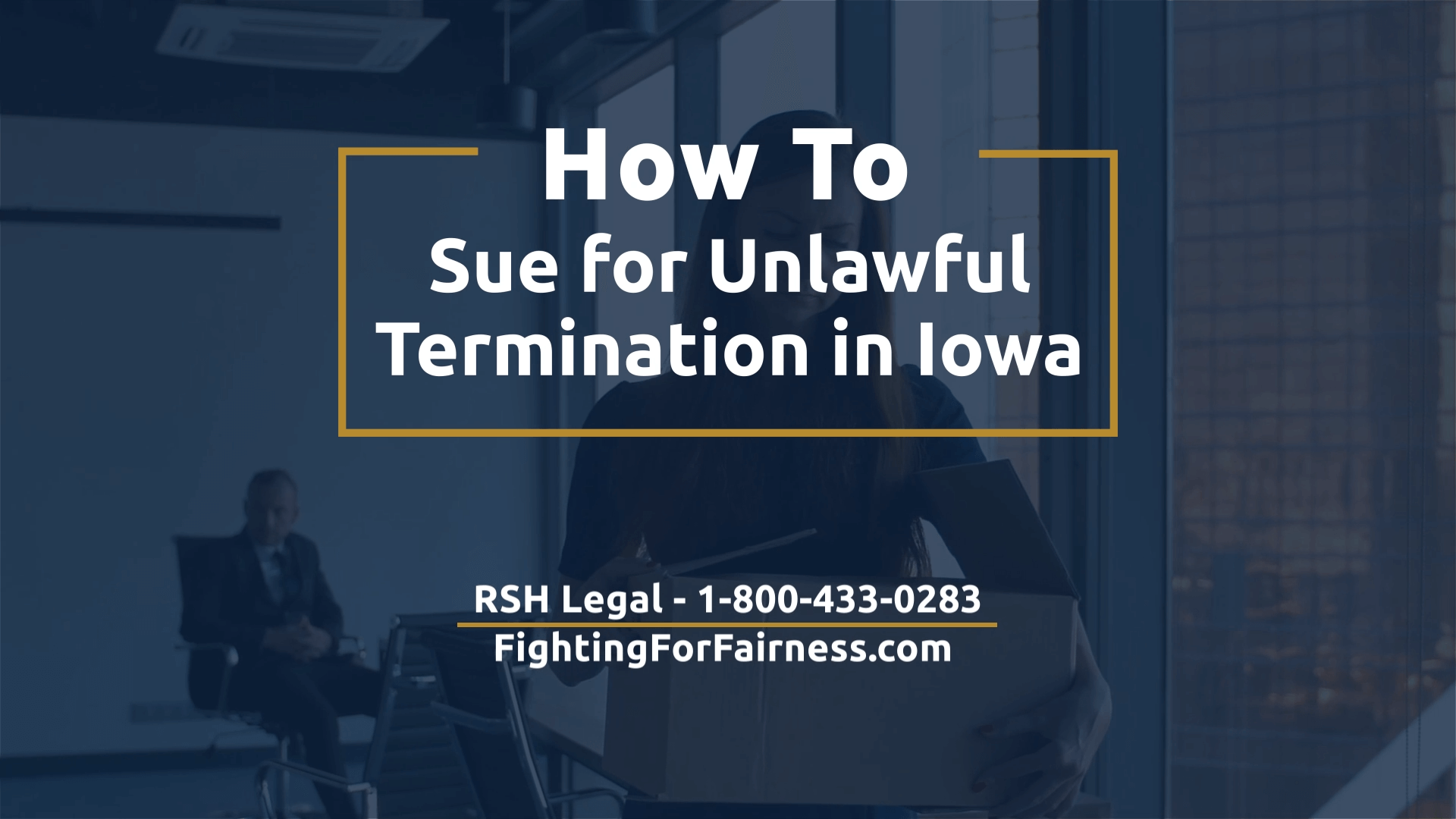How Does COVID-19 Affect My Disability Accommodations at Work in Iowa?
The COVID-19 pandemic has disrupted the workplace and caused employers to rethink where and how work is performed. Stay-at-home orders, CDC guidance, and other measures designed to control the spread of the coronavirus have caused employers to adjust their work policies and practices.
Does the ADA or CDC Guidelines Apply to Employers’ Accommodations?

This summer, the Equal Employment Opportunity Commission (“EEOC”), the federal agency that administers the American with Disabilities Act (“ADA”), put out information that answers common employer questions about their continued obligations under the ADA.
The ADA prohibits employers from discriminating against disabled individuals. It also requires employers to accommodate the known disabilities of their employees if the requested accommodation does not result in an undue hardship to the employer.
This guidance, entitled “What You Should Know About COVID-19 and the ADA, the Rehabilitation Act, and Other EEO Laws,” says the laws already in place, including the ADA, “continue to apply during the time of the COVID-19 pandemic, but they do not interfere with or prevent employers from following the guidelines and suggestions made by the CDC or state/local public health authorities about steps employers should take regarding COVID-19.”
In short, if CDC guidelines and other COVID mandates and the ADA bump heads, the COVID mandates win out.
This information answers questions regarding COVID-19’s effect on the primary requirements of the ADA including:
- Prohibitions regarding disability-related inquiries and medical exams
- Confidentiality of medical information
- Hiring and onboarding, and
- Reasonable accommodation.
What Other Information Do I Need to Know About Reasonable Accommodation?
The EEOC gives the following information about an employer’s obligation to accommodate employees’ known disabilities:
- If a job can only be performed at the workplace and an employee’s disability prohibits him or her from working there, the EEOC encourages “flexibility” when determining “if some accommodation is possible in the circumstances.”
- If an employee’s mental disability is exacerbated by the COVID-19 pandemic, the employee may be entitled to new or changed accommodations the employee did not have before the pandemic. Examples of mental disabilities that may result in new or enhanced accommodations include anxiety disorder, obsessive-compulsive disorder, or post-traumatic stress disorder.
- Employers may be required to provide additional or changed accommodations to disabled employees while the COVID-19 pandemic is ongoing, provided those accommodations do not result in undue hardship.
- Despite the COVID-19 pandemic, employers and employees should still communicate with each other to reach appropriate accommodations. As part of this process, employers may ask questions or request medical documentation to determine if a requested accommodation is necessary or if an employee has a disability the ADA protects.
- Employers can consider the COVID-19 pandemic, or what the EEOC described as “current circumstances,” when considering if an employee’s accommodation request creates an undue hardship. When determining if a given accommodation is cost prohibitive, the EEOC instructs employers to, among other things, “weigh the cost of an accommodation against its current budget while taking into account constraints created by this pandemic.”
- Employers who have employees work from home during the COVID-19 pandemic are not automatically required to permit teleworking as an accommodation. However, the EEOC makes clear that “assuming all the requirements for such a reasonable accommodation are satisfied, the temporary telework experience could be relevant to considering the renewed request.”
When Do I Need an Employment Law Attorney?
Determining what accommodations the ADA requires can be complicated even under ordinary circumstances. COVID-19 has made things even more complex. If your employer refuses to accommodate your disability, we offer a free, no-obligation case evaluation.
Call us today at 1-319-774-1903 to speak with an experienced Iowa employment law attorney.




